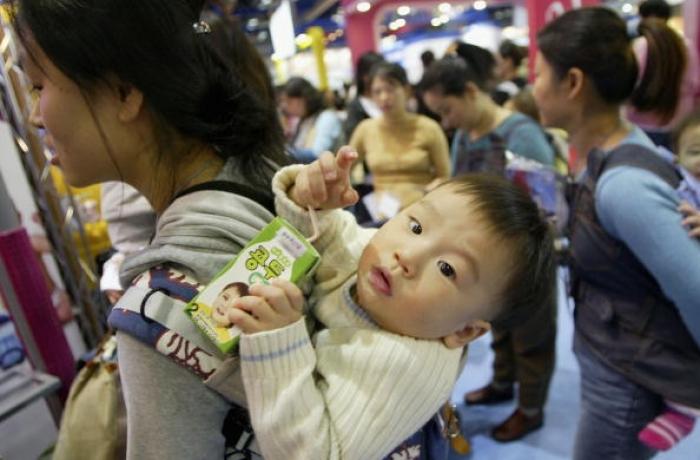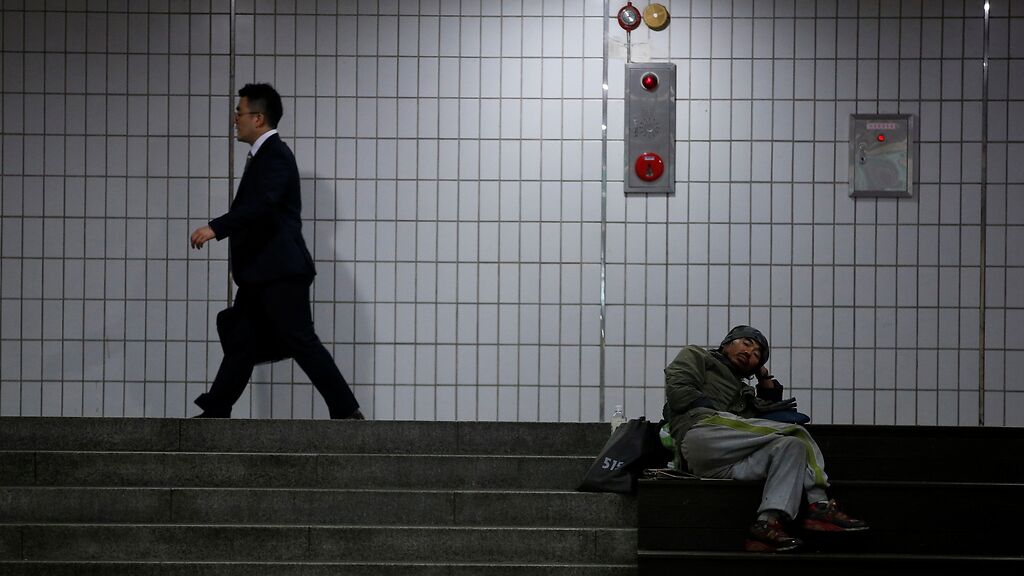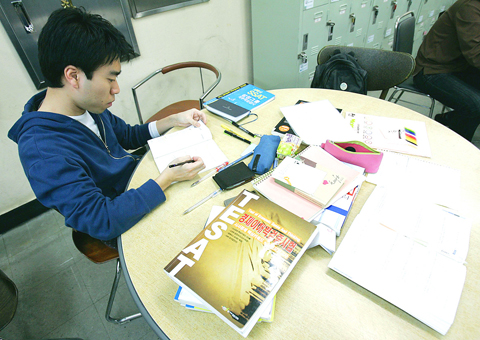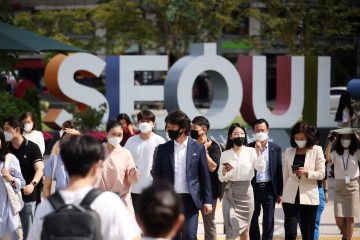N-Po Generation: 5 Reasons Why Young People Believe Giving Up on Everything Is the Ultimate Solution

N-Po Generation: 5 Reasons Why Young People Believe Giving Up on Everything Is the Ultimate Solution
Have you ever felt discouraged by family, work, social, political, academic, or environmental problems that made you feel like you should just…give up? Well, that’s how the n-po Generation feels. It is the generation of young people in South Korea who have given up on n number of things due to economic and social pressures.

Image Source
This was one of the most important challenges Moon Jae-in had to face when he became president in 2017. The n-po generation, not satisfied with the ex-president’s job, was the group to convince by the major parties [Democratic Party of Korea (DPK) and People Power Party (PPP)] during the 2022 presidential election. If Yoon Suk-yeol, set to take office on May 10, got into power, it is largely thanks to young people with ages from 20 to 30 (also dubbed the ‘2030 generation’). Though the two main candidates were unpopular in what was referred to as ‘the election of the unfavorables’, the youth’s repressed anger with the outgoing president’s party (DPK) was a decisive factor.
Table of Contents
N-Po Generation Is Actually the Last Resort
Let’s start with some Korean words you may need to know for the rest of this post.
Il = one
Sam = three
O = five
Chil = seven
Gu = nine
Po is short for the verb 포기하다 (pogihada = to give up)
So, way before the n-po generation, in 2009, they were already talking about the 880,000 Won Generation (880,000 won was what temporary staff or contract workers were making a month in net pay; roughly $650 inflation-adjusted). Back then, the unemployment rate for people with ages from 20 to 29 was 8.5%. Consequently, university graduates were the ones that suffered the most from the 2007-2008 financial crisis.
Then, there was the Sampo Generation. This is the generation that gave up on three things: relationships, marriage, and children. From there, the situation started getting worse and worse. Capitalism was upending Korean people’s lives, which gave birth to:
- Opo Generation that gave up on 5 things: take the elements already abandoned by the Sampo Generation + social life and the idea of owning a house.
- Chilpo Generation that gave up on 7 things: what the Opo Generation abandoned + interpersonal relationships and hopes.
- Gupo Generation that gave up on 9 things: what the Chilpo Generation abandoned + health and physical appearance.
And with this continually squeezing condition, the surrender of the new generation is no longer limited to 3, 5, 7, or 9 things but an uncountable number of things, which defines the n-po generation. There are even young people who identify as the Ilpo generation. Instead of giving up on a lot of things, they choose to give up on one thing: life.
The Manifestation of the N-Po Generation’s Anger
Young Korean people (n-po generation) are working part-time jobs to pay for tuition and fees. Some scientists posit that laughing kills the pain. But the youth is not fully convinced. Thinking about how painful it is to find a job once you graduate doesn’t delight them. And those who succeed in finding a job worry about marriage. Those who get married worry about buying a house.
Family Background
Unfortunately, there is a division among the n-po generation, young people themselves. In opposition to ‘being born with a golden spoon’, in 2015, a new term was coined: ‘dirt spoon’. It is used to refer to people who were born in a poor family and have little to no financial support.
On one hand, some ‘gold spoons’ say ‘dirt spoons’ use their family income as an excuse. On the other hand, old people maintain the 2030 generation is always whining, they are not working hard enough, they want to do things the easy way. However, the truth is, in Korea, your family background determines your success more than efforts and skills.
This may lead to self-deprecation, which is not a bad thing per se. From a psychological point of view, self-deprecation is part of the self-protection mechanism that every human being has. The problem, as always, is when there is not enough or too much. People with low self-esteem or those who repeat self-deprecation.
People with low self-esteem have a slower recovery rate from the psychological shock that inevitably occurs in the process of self-deprecation. Because of this, the more this process is repeated, the more negative feedback accumulates rather than self-protection.
People who repeatedly self-deprecate miss out on opportunities for self-reflection. Setting low expectations and selling themselves short are conducive to neither personal stability nor personal development for the n-po generation.
Self-efficacy might be a leap forward in that it refers to “an individual’s belief in their capacity to execute behaviors necessary to produce specific performance attainments”. A person with a strong sense of self-efficacy has specific confidence in the good parts, and based on this, forms a positive self-awareness that even the bad parts can be corrected gradually. Nevertheless, in a society marked by wealth inequality, is self-efficacy among the n-po generation sufficient to succeed?

Source: Ministry of Employment and Labor; Korean Statistical Information Service
Low Birth Rate
Having a child is expensive. Most young Koreans are enrolled in evening classes, which is very onerous. When it is difficult to study, to work, to live, and when the future is not guaranteed, it is quite natural not to have a child because of the costs to be borne. Just thinking about this makes the n-po generation give up on having children. Korean couples that have several children without having the means are even criticized. (Note: In Korea, children born out of wedlock are rare: single mothers are victims of violent discrimination.)
The low birth rate is also explained by the strong gender inequality. The supporters of the president-elect Yoon Suk-yeol maintain there is no gender inequality in the country and if it exists, men are the victims. But the World Economic Forum suggests otherwise. In their Global Gender Gap Report 2021, South Korea ranks 123 out of 156 countries in terms of economic participation and opportunity.
In Korea, it is up to the mother to take care of the children, and the social and family pressures to quit after giving birth are overwhelming, which of course takes a toll on them. Childcare structures, such as crèches, are insufficient. Working days are endless and incompatible with school hours. Taking private parental leave is tricky. Finding a job afterward is difficult with companies preferring to recruit men.
Many small and medium-sized businesses do not provide parental leave, and many women risk seeing their career affected by pregnancy. In these circumstances, many of them choose not to have children. This demographic decline has serious consequences for health and pensions, as well as a shortage of personnel within the active population.
However, there is an exception in Sejong City, the region with the best fertility rate (1.28 in 2020). Sejong is Korea’s administrative capital: the city is mainly populated by civil servants, or in general people who benefit from stable jobs, reasonable working hours, and reduced discrimination against women.
In 2021, the number of newborns in South Korea hit a record low of 260,500. It was 272.3 thousand in 2020.
The South Korean population today stands at nearly 51.3 million. In 2020 and in 2021, President Moon Jae-in launched a series of measures to address the problem, in vain. Starting this year, the government started doling out cash gifts of 2 million won for a birth + 300,000 won until the child turns 1.
South Korea has one of the lowest fertility rates in the world, with a worrying record of 0.81 children per woman, far behind the minimum rate of 2.1 – deemed necessary by the United Nations to effectively balance a country’s death rate.
President-elect Yoon Suk-yeol may cause the n-po generation to be more adamant. Since he does not have a child, why would they?
Youth Unemployment Rate
Although Korea is priding itself on having a low unemployment rate (3% in March 2022), 3 points are to be made:
- Slow economic growth causes the business sector to reduce employment in new positions.
- The number of graduating from middle school to high school is as high as 80%, causing a shortage in the labor market.
- The youth unemployment rate in Korea currently stands at 10%.
- The number of elderly people who have not retired has increased, causing the opportunity to step up to a high position to be reduced.
According to the employment trends announced by Statistics Korea (KOSTAT), the number of employed persons decreased for 11 consecutive months until January 2021, recording the worst situation since the 1997 Asian financial crisis. In addition, the number of economically inactive people who gave up on finding a job is increasing due to the prolonged employment crisis. In particular, the number of people giving up on job search in their 30s increased by 33.9% from 210,000 in January 2020 to 281,000 in January 2021 of this year, showing the largest increase among all age groups.
In 2020, The unemployment rate of the youth aged 15~29 stood at 9.0% before the pandemic really hit. Still, young people were the biggest victims of covid-19. College and high school graduates had more difficulty in finding jobs. The employment rate for college male graduates was 12.1%. The rate for high-school female graduates was 14.4%.
The current policy may not be that efficient. The government invests huge amounts of money to provide various employment subsidies without a fundamental improvement plan for the youth problems. It relies only on the creation of short-term jobs in the public sector. It is not an appropriate way to relieve the anxiety of the 2030/n-po generation and has little to no practical effect.
It is necessary that the government humbly accept the criticism that it is not producing clear results even though it has invested the most money in jobs in Korean history. The next government needs to change the direction of existing job policies. It is necessary to take fundamental measures to create an ironclad foundation so that companies and the private sector can focus on creating high-quality jobs.
Cost Of Living Deemed Expensive by the N-Po Generation
Because tradition requires the future husband to provide accommodation. A challenge as real estate in Seoul reaches astronomical prices. In a country where appearance is paramount, the in-laws often demand that the future groom (or the future bride) be from a good family, a graduate of a good university, or an employee of a prestigious company. South Korea, in addition to having an enshrouded caste system, is a country (like many others) where fathers deny requests for their daughter’s hand based on the suitor’s job. Working at a small or medium-sized company reduces your chances of getting married.
The cost of living is another factor that affects the mentality of n-po people. Nearly 9.7 million people live in Seoul, calling it an expensive city to live in. The property price to income ratio is 29.40, ranking 9th highest out of 119 countries. Further, house prices are so high in Seoul that the Citizens’ Coalition for Economic Justice (CCEJ) found that it would take 25 years to buy a 99m2 apartment, presuming that a household was to save every last cent of its disposable income.
The cost-of-living index is 73.22, the 20th highest out of 139.
One cannot say the n-po generation is wrong about not wanting to buy a house. They simply cannot afford it because the cost is objectively exorbitant.
Social Pressure
Korea is a country where your position is more important than your name, where it is frowned upon to consult a psychiatrist, and where young people spend their days locked up in video game rooms (PC bang). With this, one has no choice but to be locked into patterns.
And it starts in kindergarten. All children grow up driven by their parents’ obsession with success. The reason? The Suneung, the national university admission exam. The most important day of their lives (on that day, some shops are shut, constructions are halted, and planes are grounded so that students do not get distracted by anything). To be admitted is a consecration. And graduating leads the way to an officially unencumbered life. To achieve this, students must attend hagwons, those very expensive private schools where tutors prepare them to be more successful and competitive. Endless days, often until 10 p.m., for a path that is impossible to deviate from.
Here, kids start competing with each other at a very young age. Young Koreans do not live in the present. Everything they do is for their future. That’s why they all think about suicide at least once (highest suicide rate among developed nations). The n-po generation refers to the country as ‘Hell Joseon’. The only possible way to escape is through death or emigration.
Let us bear in mind that if the ladder of hope for social advancement, which presupposes fair competition among young people (n-po generation) who will lead the country in the future, disappears, it could lead to a national disaster not only for young people but also for an entire society.
The n-po generation is sold a dream about education, especially. They are told to spend hours and hours studying, cramming. At a younger age, they believe good grades will assure them a good life. They are told what they should be. However, once the reality hits them, they realize what they really are in the system.
We can confidently say that worldwide, no other generation of young people than today’s has the most sophisticated resumes. But jobs are to be found nowhere. Or if you are lucky to get one, it may not make you happy. Just take a gander at The Great Resignation. So, if nowadays, in the image of the n-po generation, young people give up on a lot of things, is it because they have too high expectations or because of a system that tells them that they just aren’t working hard enough?
Don’t hesitate to read more about social life in South Korea here!
















